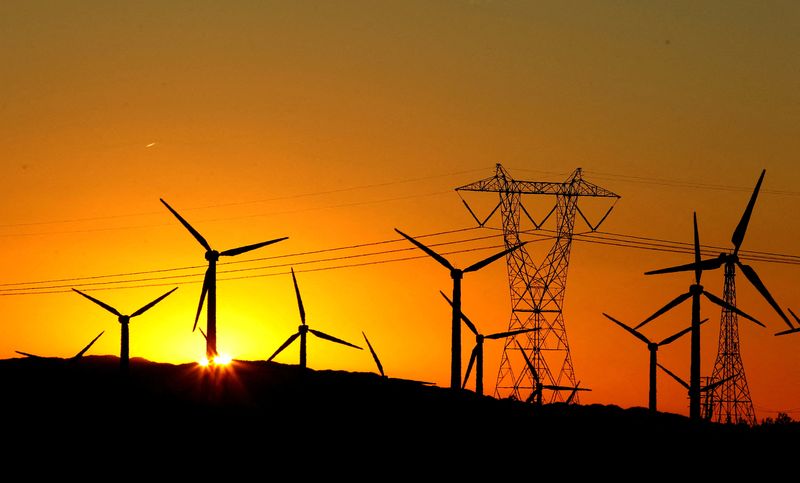By Valerie Volcovici
WASHINGTON (Reuters) – The Biden administration on Wednesday proposed expanding the tax credits that for years have boosted U.S. solar and wind energy projects to cover a broader range of clean energy technologies, including nuclear fission and nuclear fusion.
The Treasury Department has released its guidelines for Clean Electricity Generation Credits and Clean Electricity Investment Tax Credits, created under the 2022 Inflation Reduction Act, which will be available in 2025 as previously available wind and solar energy production and investment tax credits disappear.
“The Inflation Reduction Act’s new technology-neutral Clean Electricity Credits, which will take effect in 2025, are one of the law’s most important contributions to addressing the climate crisis,” said John Podesta, Senior Advisor to the President for International Climate Policy. in a statement.
He said they will help the US achieve its goal of achieving a net-zero emissions energy sector by 2035.
The proposal identifies half a dozen technologies that may qualify for the lucrative tax breaks, including marine and hydrokinetic energy, nuclear fission and fusion, hydropower, geothermal energy and some forms of waste energy recovery. The credits could amount to up to 30% for wind and solar energy projects if all conditions were met.
Treasury Secretary Janet Yellen told reporters that the IRA has already leveraged more than $850 billion in clean energy and manufacturing investments from the private sector and led to record increases in renewable energy capacity.
The new program is “the next important step,” she said.
“These credits represent an unprecedented, long-term commitment for the clean energy sector to ensure that the U.S. will be a key market for new clean energy generation over the next decade and beyond,” she said.
Research firm Rhodium Group estimated that credits could lead to a reduction in greenhouse gas emissions of 300 to 400 million metric tons compared to no tax credits in 2035, a reduction of 29 to 46 percent.

Some environmental groups expressed concern that tax credits for zero-greenhouse-gas-emissions technology could ultimately support controversial energy sources, such as waste burning or methane biogas captured in landfills.
“The Biden administration must stop dirty energy from taking over billions in taxpayer dollars,” said Sarah Lutz, a campaigner for Friends of the Earth.


